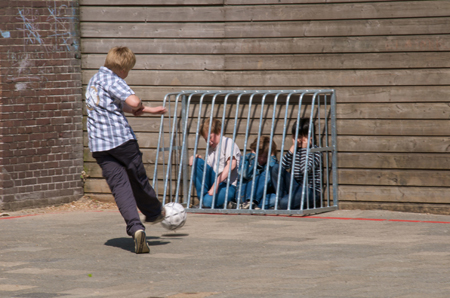| << Chapter < Page | Chapter >> Page > |
Another role of schools, according to functionalist theory, is that of sorting , or classifying students based on academic merit or potential. The most capable students are identified early in schools through testing and classroom achievements. Such students are placed in accelerated programs in anticipation of successful college attendance.
Functionalists also contend that school, particularly in recent years, is taking over some of the functions that were traditionally undertaken by family. Society relies on schools to teach about human sexuality as well as basic skills such as budgeting and job applications—topics that at one time were addressed by the family.
Conflict theorists do not believe that public schools reduce social inequality. Rather, they believe that the educational system reinforces and perpetuates social inequalities arising from differences in class, gender, race, and ethnicity. Where functionalists see education as serving a beneficial role, conflict theorists view it more negatively. To them, educational systems preserve the status quo and push people of lower status into obedience.

The fulfillment of one’s education is closely linked to social class. Students of low socioeconomic status are generally not afforded the same opportunities as students of higher status, no matter how great their academic ability or desire to learn. Picture a student from a working-class home who wants to do well in school. On a Monday, he’s assigned a paper that’s due Friday. Monday evening, he has to babysit his younger sister while his divorced mother works. Tuesday and Wednesday, he works stocking shelves after school until 10:00 p.m. By Thursday, the only day he might have available to work on that assignment, he’s so exhausted he can’t bring himself to start the paper. His mother, though she’d like to help him, is so tired herself that she isn’t able to give him the encouragement or support he needs. And since English is her second language, she has difficulty with some of his educational materials. They also lack a computer and printer at home, which most of his classmates have, so they have to rely on the public library or school system for access to technology. As this story shows, many students from working class families have to contend with helping out at home, contributing financially to the family, poor study environments and a lack of support from their families. This is a difficult match with education systems that adhere to a traditional curriculum that is more easily understood and completed by students of higher social classes.
Such a situation leads to social class reproduction, extensively studied by French sociologist Pierre Bourdieu. He researched how cultural capital , or cultural knowledge that serves (metaphorically) as currency that helps one navigate a culture, alters the experiences and opportunities available to French students from different social classes. Members of the upper and middle classes have more cultural capital than do families of lower class status. As a result, the educational system maintains a cycle in which the dominant culture’s values are rewarded. Instruction and tests cater to the dominant culture and leave others struggling to identify with values and competencies outside their social class. For example, there has been a great deal of discussion over what standardized tests such as the SAT truly measure. Many argue that the tests group students by cultural ability rather than by natural intelligence.

Notification Switch
Would you like to follow the 'Introduction to sociology' conversation and receive update notifications?